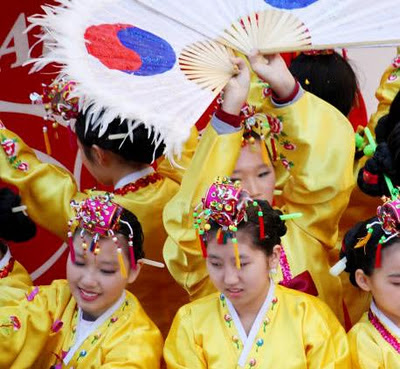Education
 As anthropologist use the term, culture is the way of life shared by a group of people. It is the collective programming of the human mind that distinguishes the members of one human group from those of another.
As anthropologist use the term, culture is the way of life shared by a group of people. It is the collective programming of the human mind that distinguishes the members of one human group from those of another.
Culture what makes people similar to one another and unites them as a group, overcoming individual differences in personality.
Culture is acquired behavior; it is learned rather than inherited genetically. It is passed on from one generation to the next through the process known as socialization.
What is socialization? Socialization refers to all the processes that transform a human being into an active participant in society. The agents of socialization are a parents, other members of the family, peers, workmates, schools, churches and the mass media.
Although the methods of teaching children the appropriate behavior patterns may vary from one society to another, all societies engage in some form of child training.
It is assume that early childhood experiences will last effect on an individual, and insofar as the same basic experiences are shared by most children in a society, a general personality pattern will be shared among most adults in that society.
Culture is present in every social act and affects hence levels of education, business and industrial practices and language. The word culture derive from the same French word ‘culture’ and the Latin word ‘cultura’.
The word referred to the tilling of the land, the improvement of crops and crop production.
Before 1780, ‘culture’ meant the tending of natural growth and a process of human training.
Later in the eighteenth century and in the early nineteenth century, culture came to be a thing in itself rather than a prioress, a general state or habit of the mind closely connected with the idea of human perfection.
The meaning of culture

- Early History Of National Geographic
The formation of the National Geographic Society, dedicated to the advancement and dissemination of specialized geographic knowledge. The National Geographic Society origins, growing out of the meeting between a group vocational scholars and a few celebrated...
- Dani People Of New Guinea
The Dani are well known because of the excitement that accompanied the discovery of their complex culture, terraced gardens, and densely populated communities in the mountainous region previously thought to be uninhibited. Although Europeans has been...
- Kalervo Oberg (1901 -1973)
Kalervo Oberg was a an anthropologist who introduced the term ‘culture shock’. He popularized one concept that would become a powerful influence on the popular imagination and which also strongly conditions the view of culture as contrast. Kalervo...
- Different Society With Different Culture
The idea of a science of society can be said to have emerged in the eighteenth century Enlightenment, a period in European history characterized by intellectual innovations, ranging across the arts, literature, science and engineering. Society refers...
- Cultural Anthropologist: Ralph Linton
Ralph Linton began his career as an archeologist, but later turn to cultural anthropology. His ethnographic fieldwork took him to Polynesia and Madagascar, as well as on archeological expeditions in Latin America and the United States. Ralph Linton was...
Education
The meaning of culture

Culture what makes people similar to one another and unites them as a group, overcoming individual differences in personality.
Culture is acquired behavior; it is learned rather than inherited genetically. It is passed on from one generation to the next through the process known as socialization.
What is socialization? Socialization refers to all the processes that transform a human being into an active participant in society. The agents of socialization are a parents, other members of the family, peers, workmates, schools, churches and the mass media.
Although the methods of teaching children the appropriate behavior patterns may vary from one society to another, all societies engage in some form of child training.
It is assume that early childhood experiences will last effect on an individual, and insofar as the same basic experiences are shared by most children in a society, a general personality pattern will be shared among most adults in that society.
Culture is present in every social act and affects hence levels of education, business and industrial practices and language. The word culture derive from the same French word ‘culture’ and the Latin word ‘cultura’.
The word referred to the tilling of the land, the improvement of crops and crop production.
Before 1780, ‘culture’ meant the tending of natural growth and a process of human training.
Later in the eighteenth century and in the early nineteenth century, culture came to be a thing in itself rather than a prioress, a general state or habit of the mind closely connected with the idea of human perfection.
The meaning of culture
- Early History Of National Geographic
The formation of the National Geographic Society, dedicated to the advancement and dissemination of specialized geographic knowledge. The National Geographic Society origins, growing out of the meeting between a group vocational scholars and a few celebrated...
- Dani People Of New Guinea
The Dani are well known because of the excitement that accompanied the discovery of their complex culture, terraced gardens, and densely populated communities in the mountainous region previously thought to be uninhibited. Although Europeans has been...
- Kalervo Oberg (1901 -1973)
Kalervo Oberg was a an anthropologist who introduced the term ‘culture shock’. He popularized one concept that would become a powerful influence on the popular imagination and which also strongly conditions the view of culture as contrast. Kalervo...
- Different Society With Different Culture
The idea of a science of society can be said to have emerged in the eighteenth century Enlightenment, a period in European history characterized by intellectual innovations, ranging across the arts, literature, science and engineering. Society refers...
- Cultural Anthropologist: Ralph Linton
Ralph Linton began his career as an archeologist, but later turn to cultural anthropology. His ethnographic fieldwork took him to Polynesia and Madagascar, as well as on archeological expeditions in Latin America and the United States. Ralph Linton was...
